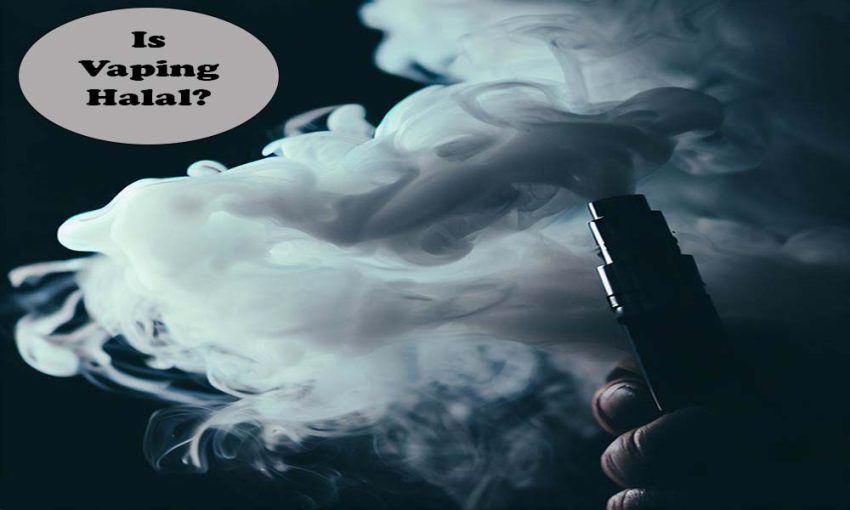Is Vaping Haram? An Islamic Perspective
Is vaping permissible within the boundaries of Islamic law? The answer is complex, hinging on a delicate balance between potential harm, intention, and adherence to core Islamic principles.
The debate surrounding vaping within the Muslim community stems from the religion's emphasis on preserving health and well-being. While some argue that vaping is inherently harmful and therefore forbidden (haram), others suggest a more nuanced approach, differentiating between vaping for pleasure and vaping as a means to quit smoking. This intricate discussion necessitates a deeper exploration of Islamic jurisprudence, scientific evidence, and the lived experiences of Muslims who vape.
| Aspect | Details |
|---|---|
| Definition of Vaping | The act of inhaling and exhaling the aerosol produced by an electronic cigarette or similar device. |
| Islamic Stance | Generally considered haram due to potential harm, but opinions differ based on intent and ingredients. |
| Key Concerns | Health risks, wasteful spending, resemblance to smoking (which is generally considered haram), and the potential for addiction. |
| Exceptions | Some scholars permit vaping as a temporary measure to quit smoking, provided it doesn't become a source of pleasure or continued dependence. Vaping nicotine-free and THC-free substances is also sometimes considered permissible. |
| Fatwas | Several Muslim-majority countries, including Malaysia and Indonesia, have issued fatwas against vaping. |
| Ramadan Implications | Vaping is generally considered to break the fast during Ramadan. |
| Further Research | IslamQA.info (This website provides a range of Islamic perspectives on contemporary issues). |
At the heart of the matter lies the question of harm. Islamic teachings unequivocally prohibit substances that are detrimental to health. Once it is proven that a particular type of e-cigarette contains harmful substances comparable to or exceeding those found in traditional cigarettes, many scholars equate the two, deeming both haram. This is grounded in the principle of preserving life and well-being, a cornerstone of Islamic ethics.
However, the landscape is not entirely black and white. Some scholars argue that if a vape product is free of harmful substances, including nicotine, THC, alcohol, or any mind-altering components, it may not fall under the category of haram. This perspective introduces the crucial element of intention. If vaping is used solely as a tool to quit smoking, a demonstrably more harmful activity, and the individual subsequently refrains from vaping for pleasure, it may be considered permissible under certain conditions. This view emphasizes the importance of prioritizing the greater good quitting smoking even if it involves a potentially lesser harm.
Complicating the discourse are the varying compositions of vape liquids. While some are nicotine-free, others contain varying concentrations of nicotine, and some even include THC or other potentially harmful additives. This diversity makes blanket pronouncements challenging. Each specific product must be evaluated based on its ingredients and potential health impacts.
The concept of "israf," or wasteful spending, also plays a role. Islam discourages excessive expenditure on non-essential items. For those who view vaping as recreational rather than a means to quit smoking, the financial cost may be considered israf, further contributing to the argument against its permissibility.
The issue becomes even more sensitive during Ramadan, the holy month of fasting. Many scholars consider vaping to break the fast, as the inhaled vapor enters the body. Breaking the fast without a valid reason is considered a major sin in Islam. Therefore, Muslims are generally advised to abstain from vaping during Ramadan, particularly during fasting hours.
Even in cases where vaping might be considered permissible outside of Ramadan, caution and careful consideration remain paramount. The long-term health effects of vaping are still under investigation, and the potential for addiction is a valid concern. Muslims are encouraged to prioritize their health and well-being, seeking guidance from knowledgeable scholars and medical professionals when making decisions about vaping.
The debate surrounding vaping in Islam is a testament to the religion's dynamic engagement with contemporary issues. As scientific understanding evolves and societal norms shift, Islamic scholars continue to grapple with these complexities, striving to provide guidance that aligns with core principles while addressing the realities of modern life. It is a conversation that requires ongoing dialogue, critical thinking, and a commitment to prioritizing both physical and spiritual well-being.



Detail Author:
- Name : Pascale Bashirian
- Username : chessel
- Email : maryjane.murray@hotmail.com
- Birthdate : 1998-06-10
- Address : 374 Brady Parkways West Kane, CO 96298-9198
- Phone : 919-206-2913
- Company : Robel-Kirlin
- Job : Entertainer and Performer
- Bio : Sunt numquam mollitia fuga mollitia. Totam illo ut quis nihil hic sed. Corporis a cupiditate nostrum. Quod aliquam qui delectus ut.
Socials
linkedin:
- url : https://linkedin.com/in/kilback1979
- username : kilback1979
- bio : Iusto id reiciendis commodi et.
- followers : 2129
- following : 662
facebook:
- url : https://facebook.com/kilbackg
- username : kilbackg
- bio : At id ea praesentium distinctio tempore ea. Sit vitae et tempore incidunt.
- followers : 5381
- following : 2370
instagram:
- url : https://instagram.com/geoffrey_official
- username : geoffrey_official
- bio : Hic nulla sit eaque rerum autem ipsam qui consequuntur. Accusantium sed est soluta dolorem.
- followers : 3066
- following : 692
tiktok:
- url : https://tiktok.com/@geoffrey.kilback
- username : geoffrey.kilback
- bio : Exercitationem perspiciatis sint recusandae sunt.
- followers : 6551
- following : 1405